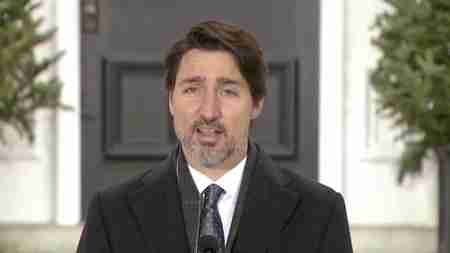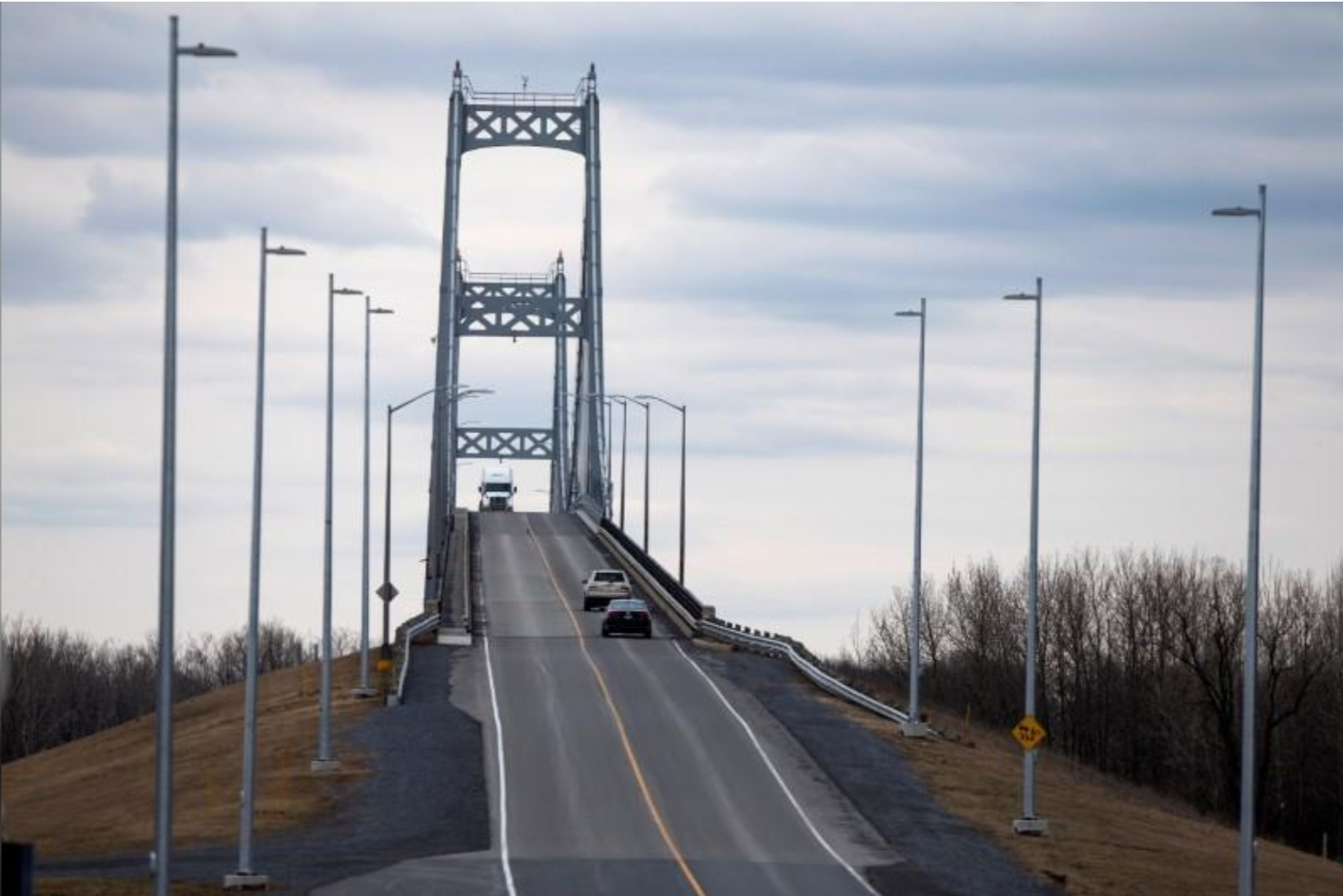
Editor's note: Hannan Hussain is an assistant researcher at the Islamabad Policy Research Institute(IPRI), and an author. The article reflects the author's opinions, not necessarily the views of CGTN.
Last week, Ottawa claimed that one million China-manufactured KN95 face masks had fallen short of federal COVID-19 standards. "The agency is conducting its due diligence on products procured by [Public Services and Procurement], verifying the quality of procured and donated supplies upon receipt," said Eric Morrissette, spokesman for the Department of Health and Canada's Public Health Agency.
These reservations were met with prompt assurance from the Chinese consulate in Canada, stating that it would investigate the claims put forth, and address the matter in the interests of Ottawa's ongoing fight against COVID-19.
"China attaches high importance to export quality control and the competent departments have recently rolled out more rigorous regulative measures," assured the Chinese Embassy. "If individual problems happened in the process of anti-epidemic cooperation, it should be resolved in a practical and realistic manner rather than being interpreted politically."
It is significant to point out that both parties saw zero value in politicizing the matter. Yet select Western news outlets, driven by their penchant for anti-Chinese sentiment, attempted to draw a wedge between two powerful allies. Leading the effort is The New York Post, a U.S.-based publication, which ran a sensational propaganda piece titled "Canada rejects 1 million non-compliant masks from China."
The article attempts to make the false case that Beijing, out of some mysterious desperation to downplay Ottawa's COVID-19 fight, is sending millions of masks across without proper export controls. What it refuses to mention is the fact that the Canadian health authorities never once made the case for rejection: They were temporarily delaying the distribution of KN95 masks to provinces and territories, since the investigation was already taking its course.
Moreover, Canadian health authorities say that they were carrying out an "assessment" of these masks for use in non-health care settings – which is synonymous to the probe launched by the Chinese Embassy to jointly assess (with Global Affairs Canada and the Canadian Public Health Agency) the nature of the claims put forth.
As a testament to quality control and medical equipment fast-tracking, China has been easing requirements that demand domestic regulatory approval prior to the export of virus care products. These measures serve as circumstantial additions to previously existing quality controls, that helped ensure that the core criteria for distributors is to meet the health standards of importing countries at all costs.
Li Xinqian, an official at China's commerce ministry, confirmed to Reuters that products with overseas approval or registration will be allowed for export only after relevant verification by a trade group authorized by the ministry itself.

The Seaway International Bridge in Cornwall Island, Ontario, Canada, March 25, 2020. /Reuters
The Seaway International Bridge in Cornwall Island, Ontario, Canada, March 25, 2020. /Reuters
This customized approach to upholding the regulatory standards of a destination country is a long-standing hallmark of China's cooperation with coronavirus-affected nations, especially when it proactively acknowledges nations' quest for fast, reliable and wide-ranging medical equipment access.
All of these hallmarks appear conveniently absent from The New York Post article – a piece that triggered a propaganda streak in a series of other smaller conservative papers, including The Post Millennial. In terms of the latter, senior editor Barrett Wilson alleged that Prime Minister Justin Trudeau's government has rejected one million "faulty masks from China" – whilst offering no shred of proof to back this wild conjecture.
Most malicious of all is the writer's pitch to the readers that the purpose of the ongoing investigation is to determine whether so-called faulty masks were having an adverse effect on Canadian workers' exposure to the virus.
This particular claim stems from a broader misguided report which alleged that 60,000 faulty surgical masks – blamed on China – were recalled by Toronto's city authorities. Later, Toronto city authorities confirmed that a "misunderstanding" between the city and its vendors had prompted speculation.
The Chinese Embassy has already offered a comprehensive statement on the issue, with numerous tangible insights on why the media should adhere to factual reporting. "After preliminary investigations by relevant Chinese authorities, we find that these countries mismatched or misused the masks. We suggest that the media should clarify the facts first before reporting."
Other prominent U.S. media outlets, such as POLITICO, have tried subtle maneuvers to pit Ottawa against Beijing. Consider the fact that reporter Maura Forrest asked Canada's Procurement Minister Anita Anand about which medical supplies [from China] were causing the biggest headache for her procurement officials.
Anand replied that her team was "actively managing" all major equipment – from N95 respirators to surgical masks – confirming that none of such "headaches" existed. The broader point: these insecurities are of America's own making.
Ottawa's decades-long rapport with Beijing needs no introduction either. Canada has routinely called upon China to help facilitate medical supplies through various channels in the country. About 10 flights have arrived in Canada from China of recent, and plans to commence a forthcoming daily flight for medical supplies are well underway.
Beijing's unflinching commitment to Canada's COVID-19 fight is evidenced by a 70 percent supply of Canada's total medical supplies worldwide. This is what true cooperation looks like.
In a nutshell, Ottawa's absolute gratitude and Beijing's willingness to ramp up bilateral and international COVID-19 collaborations, make sure that no amount of political scheming or media maneuvering can ever cast a shadow on China-Canada COVID-19 cooperation.
(If you want to contribute and have specific expertise, please contact us at opinions@cgtn.com.)